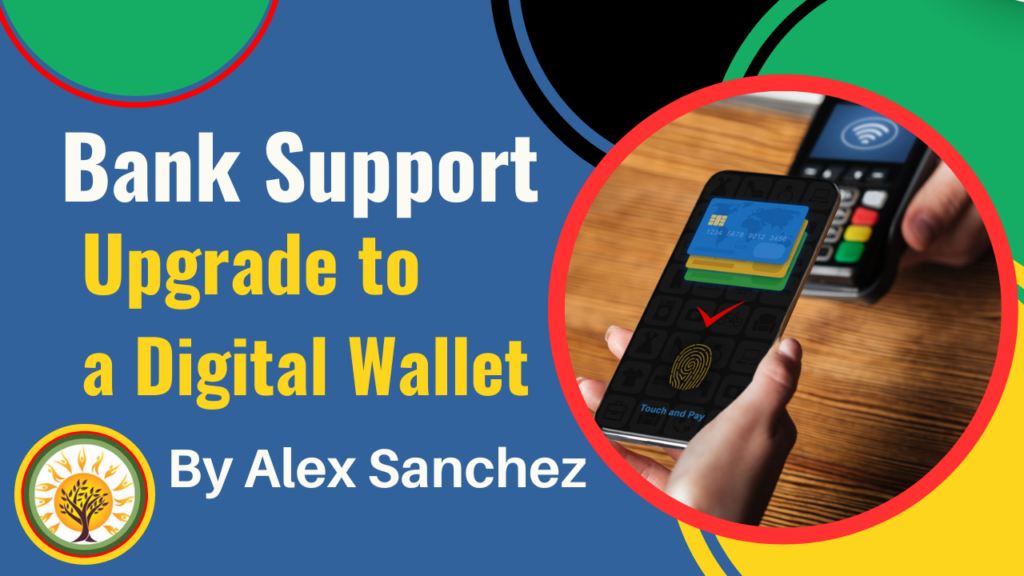Make your money work for you by gaining insights on how to better address your banking needs. Discover the responses to the following questions on how a digital wallet works, the difference between a bank and credit union, and the ways in which banks assist people with hearing or vision impairments. Our questions come from people like you who want to learn more about the banking industry with answers written by our expert banker, Alex. If you have a question about your banking needs, please email Alex at alexexpertbanker@gmail.com. Relevant questions will be posted on our website, and all questions will be answered by Alex in a timely manner.
Question: How does a digital wallet work?
Asked by: Kaylee from Santa Barbara, California.
Answer: A digital wallet is a convenient way to pay for goods and services using a smartphone and smartwatch. It electronically stores debit and credit card information through a mobile app. The most common digital wallets are Apple, Google, and Samsung Wallet and are either preinstalled or can be downloaded through the Apple App Store or Google Play. Once the wallet is on the smart device, a debit or credit card can be added by either taking a picture of both sides of the card or entering the card number, expiration date, and CVV/CVC number. Digital wallets can be used at any terminal that has the contactless symbol. It looks like the Wi-Fi signal turned sideways. Information on a digital wallet is encrypted and authentication is typically required to complete the transaction.
Question: What is the main difference between a bank and credit union?
Asked by: Daisy from Phoenix, Arizona.
Answer: There are many similarities between banks and credit unions. Both offer a myriad of financial products including checking accounts, savings accounts, certificates of deposits, mortgages, credit cards, debit cards, loans, lines of credits, safe deposit boxes, and more. The main difference is banks are for-profit institutions, while credit unions are non-profit organizations. Banks are publicly traded companies that are owned by shareholders and are obligated to share their profits by paying them dividends. On the other hand, credit unions are owned by members and profits are returned to them in the form of more favorable interest rates and lower fees. To join a credit union, a member must meet certain eligibility requirements. This can be based on where they live, work, go to school, worship, or another common bond.
Question: How do banks assist those who have hearing or vision impairments?
Asked by: Tyler from Cape Coral, Florida.
Answer: The American with Disabilities Act (ADA) requires businesses to make reasonable accommodations when servicing people with disabilities. Banks do this by providing products and services that are accessible to all customers. This includes ATMs with audio assistance, account statements that are in large print or braille, audio recordings of printed materials, accepting telecommunications and video relay services, allowing service animals in all areas the public is allowed to go, and offering raised-line and large-print checks. If an organization or business doesn’t comply with the ADA, they can be fined up to $75,000 for the first violation and $150,000 for subsequent violations.
 Written by: Alex Sanchez
Written by: Alex Sanchez
Important: For your specific questions about banking, contact your banking expert, Alex, at: alexexpertbanker@gmail.com
About our Author: With nearly 20 years of experience in the banking industry, Alex is currently a branch manager with First Interstate Bank. Throughout his career, he has contributed his expertise to renowned financial institutions like Bank of America, US Bank, and Chase. He also has a bachelor’s degree in Business Economics from the University of California, Riverside.
Discover More…
- Unlock the secret to a happier, healthier lifestyle by delving into additional captivating articles on our website at: Smart Strategies for Successful Living.
- Enjoy our uplifting and inspiring videos on our YouTube channel at: CLICK HERE.
- For more resources on Bank Support: CLICK HERE.
Check Out Our Captivating Videos
![]() About Smart Strategies for Successful Living: CLICK HERE.
About Smart Strategies for Successful Living: CLICK HERE.
![]() Your Journey of Self-Discovery: CLICK HERE.
Your Journey of Self-Discovery: CLICK HERE.
![]() Our YouTube Channel: CLICK HERE.
Our YouTube Channel: CLICK HERE.
Bank Support
![]() Next Steps to a Credit Card Default: CLICK HERE.
Next Steps to a Credit Card Default: CLICK HERE.
![]() Selecting A Bank That Works for You: CLICK HERE.
Selecting A Bank That Works for You: CLICK HERE.
![]() Safeguard Against Smishing: CLICK HERE.
Safeguard Against Smishing: CLICK HERE.
![]() Cash Advances on Credit Cards Are Costly: CLICK HERE.
Cash Advances on Credit Cards Are Costly: CLICK HERE.
![]() Keep Your Eye on the Prime Rate: CLICK HERE.
Keep Your Eye on the Prime Rate: CLICK HERE.









